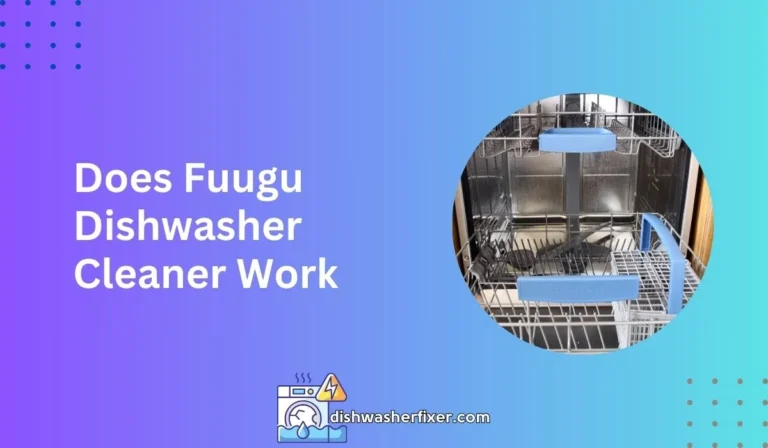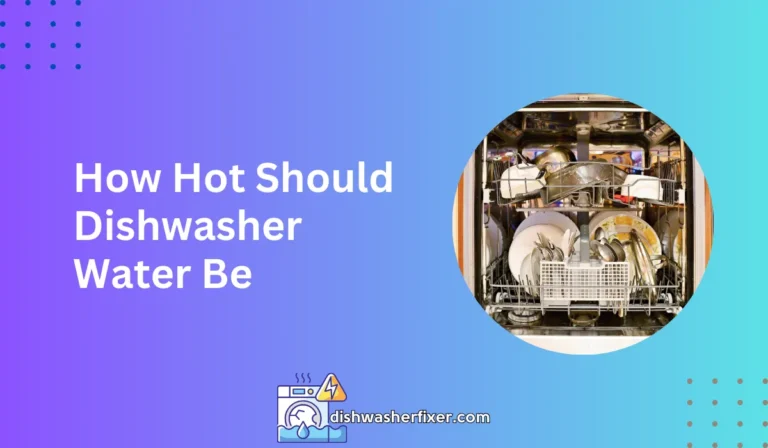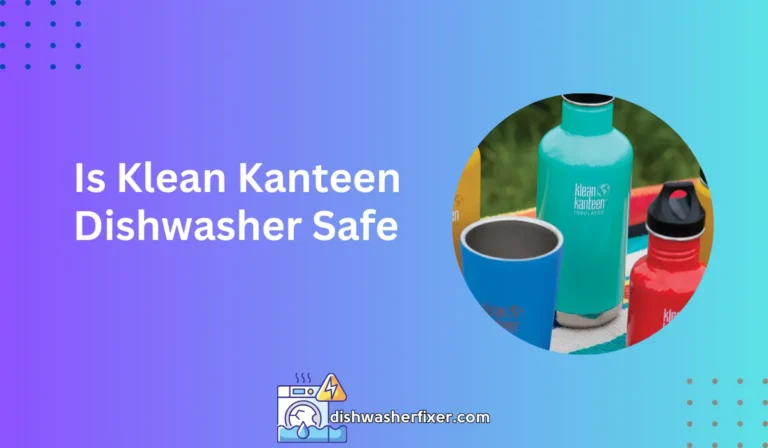Can You Put Drano in a Dishwasher? Safe or Risky Fix!
No, you should not put Drano in a dishwasher. Drano is formulated for clogged drains and can damage a dishwasher’s rubber seals and other components. For dishwasher clogs, use dishwasher-safe products or consult a professional.
The Risks of Using Drano in a Dishwasher
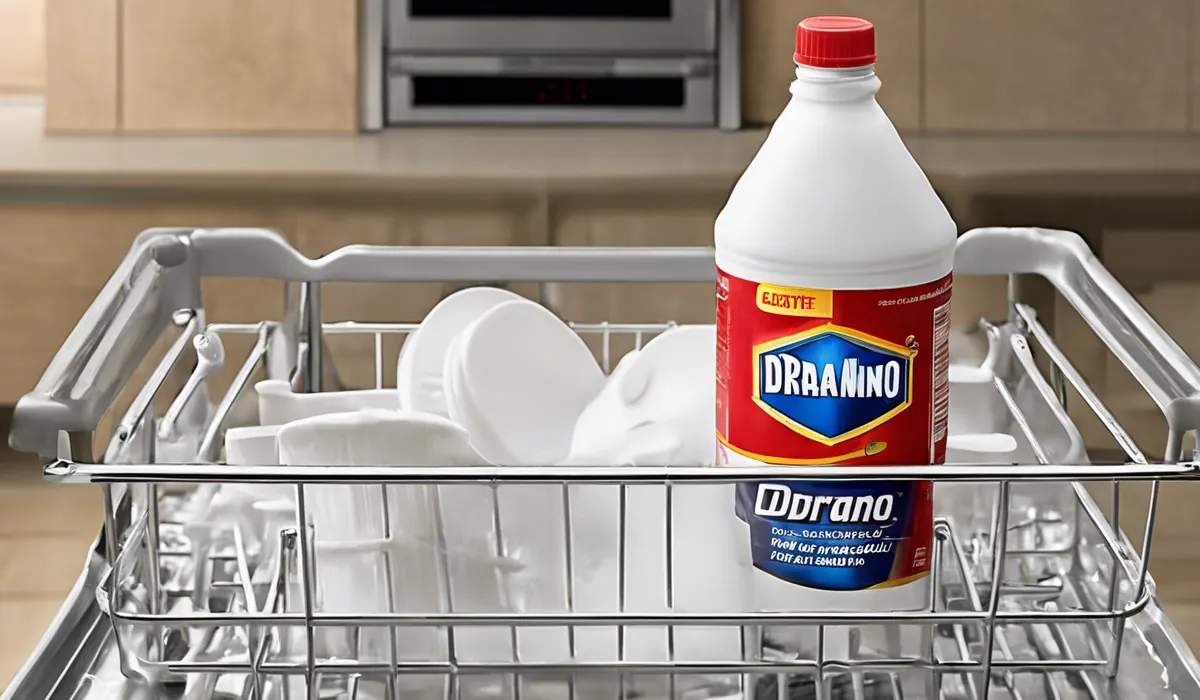
Understanding Drano and Its Intended Purpose
Drano is a household name synonymous with clearing clogged drains. Its primary use is to dissolve tough blockages in sinks and toilets.
While effective in its designated role, Drano was not formulated for dishwashers.
The chemical makeup of Drano is designed to tackle specific types of clogs that do not occur in dishwashers under normal circumstances.
Chemical Composition and Impact on Dishwasher Components
The chemical composition of Drano includes substances like sodium hydroxide and sodium hypochlorite.
These chemicals are strong and reactive, leading to a high possibility of damaging the delicate parts of your dishwasher.
The inner workings of a dishwasher are not made to withstand the caustic nature of Drano, which can lead to costly repairs or the need for a replacement.
Potential Damage to Rubber Seals and Hoses
Drano can cause significant damage to the rubber seals and hoses in your dishwasher.
These components are essential for preventing leaks and maintaining the integrity of the appliance.
The harsh chemicals in Drano can degrade these materials over time, leading to leaks and water damage in your kitchen.
Risk of Chemical Reactions with Dishwasher Detergent
Using Drano in your dishwasher also poses a risk of chemical reactions with the dishwasher detergent.
This can result in the release of toxic gases or create residues that are difficult to remove and can contaminate your dishes.
The safety of your household could be compromised if these chemicals are inadvertently mixed.
User and Household Safety Concerns
Safety concerns extend beyond the appliance itself. Handling Drano requires care as it can cause burns, respiratory issues, and eye irritation.
If used improperly, such as in a dishwasher, it poses a higher risk due to the potential for chemical reactions or residue left on dishes.
It’s crucial to prioritize user safety and the well-being of those in the household by avoiding the use of Drano in dishwashers.
Proper Methods for Unclogging a Dishwasher

Initial Troubleshooting for a Clogged Dishwasher
Before reaching for chemical solutions, there are several initial steps you can take to troubleshoot a clogged dishwasher.
Check for any visible blockages in the drain and ensure that the filter is clean. Often, removing accumulated food particles and debris can resolve the issue without the need for chemicals.
Cleaning and Maintenance to Prevent Clogs
Regular cleaning and maintenance of your dishwasher can prevent clogs from occurring in the first place.
This includes routinely checking and cleaning the filter, wiping down the door seals, and running a dishwasher cleaner through a cycle to remove any built-up residue.
Unclogging Without Harsh Chemicals
There are safer and more suitable methods for unclogging a dishwasher that do not involve harsh chemicals like Drano.
These methods are not only better for your dishwasher but are also environmentally friendly and less hazardous to health.
Using Hot Water, Vinegar, or Baking Soda Solutions
Simple household items like hot water, vinegar, and baking soda can be effective in clearing minor clogs.
For example, running a hot water cycle can help dislodge clogs, while vinegar and baking soda can be used to create a natural cleaning solution that helps break down grease and buildup.
Manually Removing Clogs from Filters and Drain Hoses
If the clog persists, you may need to manually remove it from the dishwasher filter or drain hose. This involves carefully dismantling the necessary parts, following the manufacturer’s instructions, and removing any obstructions by hand.
Professional Advice and When to Seek Help
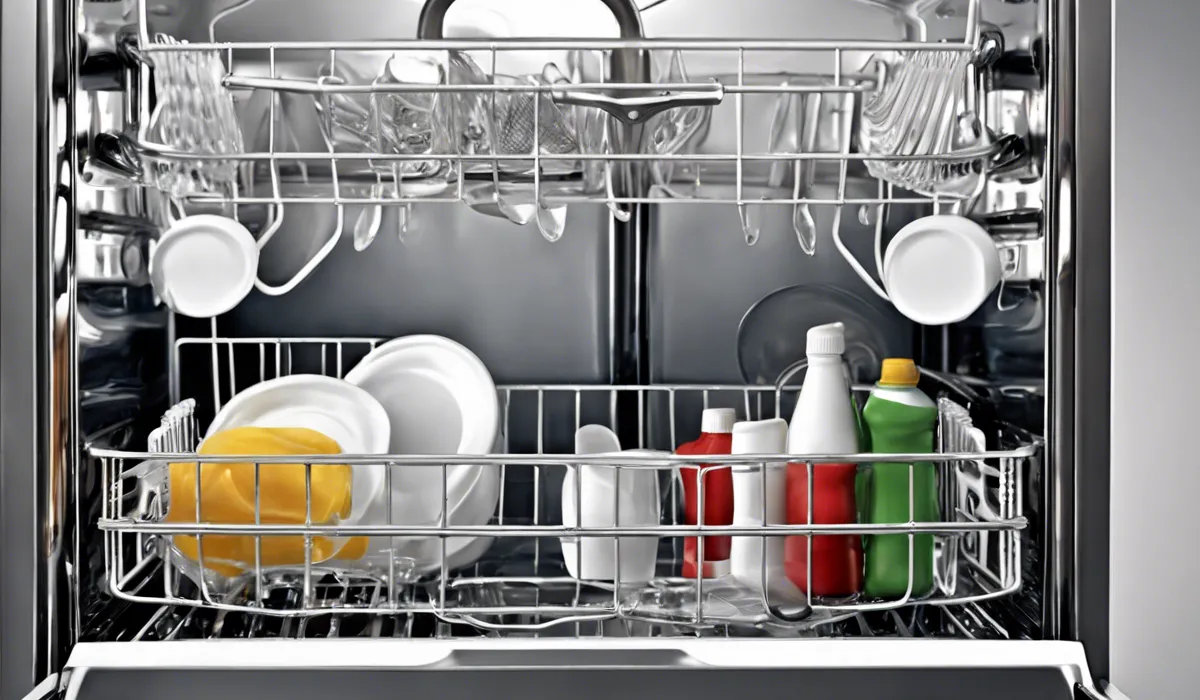
Recognizing When to Call a Professional
There are signs that indicate it’s time to call a professional for your dishwasher issues.
If you’ve tried the above methods and the clog persists, or if you notice water leaking or the dishwasher is making unusual noises, it’s best to seek professional help.
Professional Diagnostics and Repairs
A professional technician can accurately diagnose the problem with your dishwasher and carry out repairs safely.
Their expertise ensures that the right methods are used to fix your dishwasher without causing further damage.
The Dangers of DIY Chemical Repairs
While DIY repairs can be tempting, using chemical cleaners like Drano can be dangerous and may lead to more harm than good.
Professionals are equipped with the right tools and knowledge to handle these chemicals safely, should they be necessary.
Benefits of Professional Servicing
Professional servicing not only addresses the immediate issue but can also prolong the life of your dishwasher.
Regular maintenance by a professional can prevent future clogs and ensure your appliance operates efficiently.
Finding a Qualified Appliance Repair Technician
When it’s time to seek professional help, finding a qualified appliance repair technician is essential.
Look for certified professionals with good reviews and a track record of success. You can start your search by asking for referrals from friends or searching online for reputable technicians in your area.
FAQs About Using Drano in a Dishwasher
Can you use Drano to unclog a dishwasher?
No, Drano should not be used to unclog a dishwasher as it can damage its components.
Is Drano safe for dishwasher rubber seals?
No, Drano can damage the rubber seals in a dishwasher.
What should you do if your dishwasher is clogged?
If your dishwasher is clogged, use dishwasher-safe products or consult a professional plumber.
Can any drain cleaner be used in a dishwasher?
Only use cleaners specifically labeled as safe for dishwashers; standard drain cleaners like Drano are not suitable.
What damages can occur if you put Drano in a dishwasher?
Putting Drano in a dishwasher can lead to damaged rubber seals and other internal components.
Final Thoughts
Drano should not be used in dishwashers as it can cause harm to the appliance’s rubber seals and internal components.
It’s designed for unclogging drains, not for dishwasher maintenance.
To address dishwasher clogs, opt for products that are specifically labeled as safe for dishwashers or seek the expertise of a professional.
